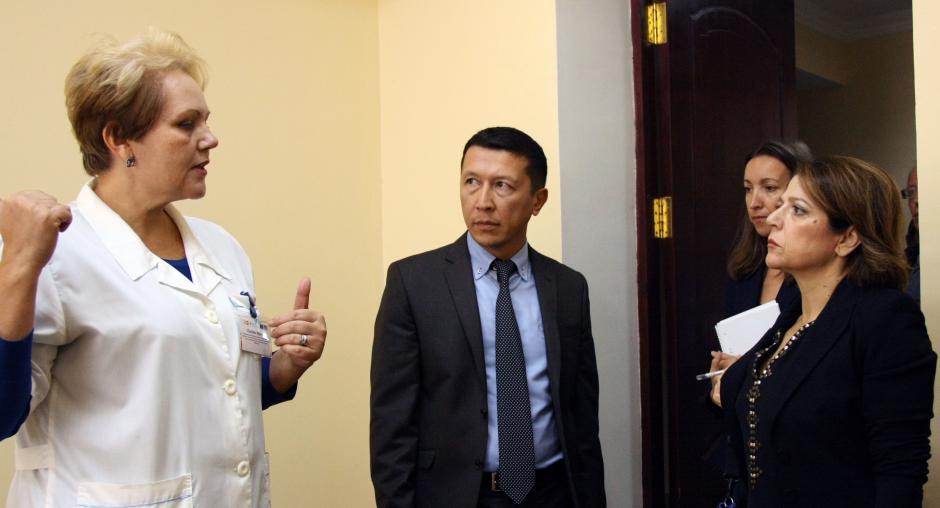OSCE Special Representative, in Uzbekistan, called for co-operative efforts to stop human trafficking

The OSCE Special Representative and Co-ordinator for Combating Trafficking in Human Beings, Maria Grazia Giammarinaro, in a visit to Uzbekistan from 5 to 9 November 2013, met with key government officials and leaders of non-governmental organizations to discuss ways to strengthen action against modern-day slavery, in co-operation with the civil society.
“Awareness of the problem of human trafficking is increasing, and the government of Uzbekistan is taking steps to prevent trafficking, and to support victims of trafficking for labour and sexual exploitation," Giammarinaro said. “The results are significant, especially regarding support to Uzbek nationals exploited abroad and returning, who are offered health care, psychological and legal counselling, vocational training and help with their job search."
Uzbekistan is the largest country by population of the former Soviet Republics in Central Asia, with more than 30 million citizens, some of whom work abroad in sectors such as agriculture and construction where they can fall prey to human traffickers. Over the past three years, some 1,200 victims of trafficking who returned to Uzbekistan have received help.
In her meetings, Giammarinaro urged the Republic of Uzbekistan to strengthen its efforts, especially regarding victim identification criteria and procedures, free legal aid, and the establishment of a state fund for compensation to victims, be they nationals or foreigners.
During her visit, Giammarinaro met with high-ranking government officials, parliamentarians and public figures, including the General Prosecutor of the Republic of Uzbekistan, Rashidjon Kadyrov; Svetlana Artykova, Chair of the Committee on Legislation and Judicial-Legal Issues in the upper chamber of Parliament; Kodirjon Juraev, Chair of the Committee on Defence and Security in the lower chamber, and Elmira Basitkhanova, Chair of the Women’s Committee.
Giammarinaro also met with civil society representatives from the non-governmental organization Shelter for Victims of Human Trafficking and the staff of the State Rehabilitation Centre for Rendering Assistance and Protection to the Victims of Human Trafficking.
“Non-governmental organizations play an important role in the fight against human trafficking as they provide essential care to victims. They can complement the work of the government and should be considered essential partners in anti-trafficking action," the Special Representative said.
